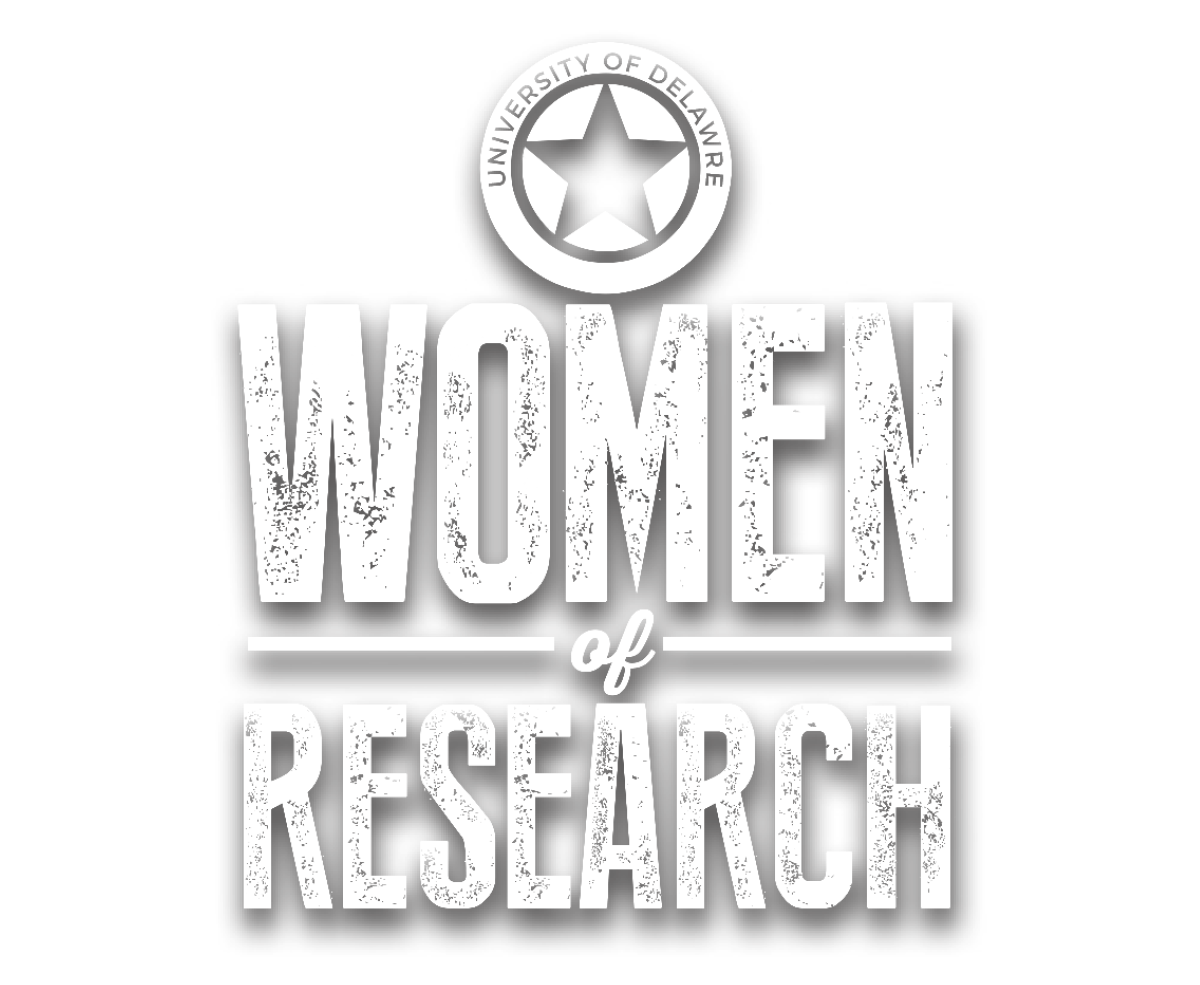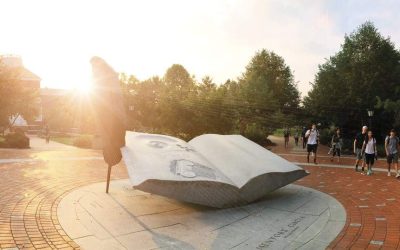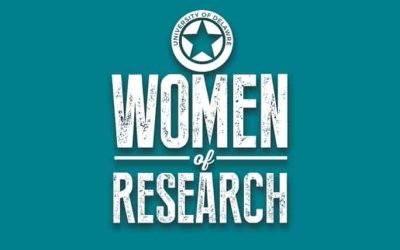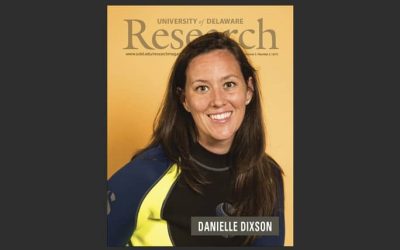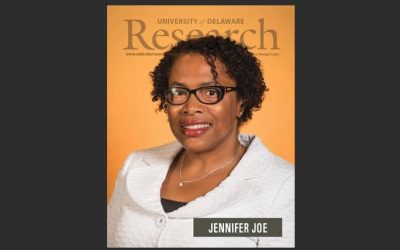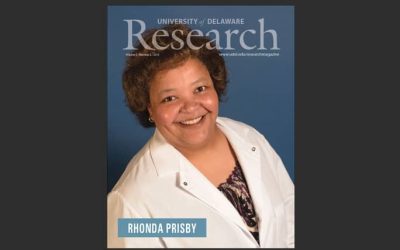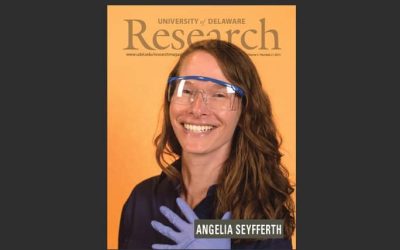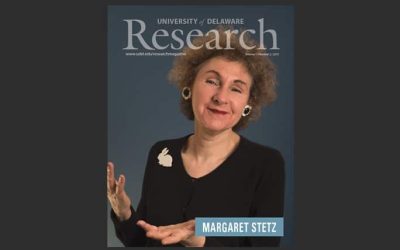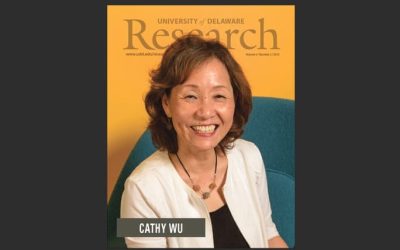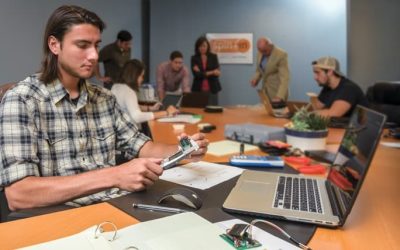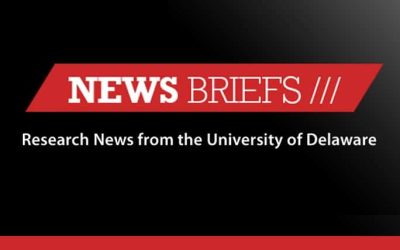
From that moment on, her career path was set. As she continued her studies to get an M.A. in quantitative methods for the social sciences at Columbia University and a Ph.D. in education policy from the University of Pennsylvania, Farley-Ripple discovered she had an affinity for working with large-scale school system data and was curious about how educators used that data as well.
“I began to focus my work on understanding educators’ and the education system’s capacity to generate, interpret and apply data and research to decisions about improving schools,” Farley-Ripple explains.
Now an associate professor and interim associate director of the School of Education, Farley-Ripple’s goal is to contribute to both the evidence base that educators can tap into when making decisions, and to increase their capacity and likelihood to use that evidence. She accomplishes this through a number of initiatives. She is a co-investigator on two prestigious grants with UD colleagues: a Spencer funded study with Joan Buttram, director of the Delaware Education Research and Development Center, exploring the relationship between assessment systems, teachers’ instructional decisions and student outcomes, and a $5 million, five-year Institute of Education Sciences grant with Henry May, director of the Center for Research, Education and Social Policy, evaluating research use in education.
As if that weren’t enough, Farley-Ripple also connects these goals to her teaching. She teaches a research use course and a policy course in UD’s Ed.D. in Education Leadership program, a data literacy course in the M.Ed. in Teacher Leadership program, and has been working with faculty on the Educational Assessment for Classroom Teachers course in the Elementary Teacher Education Program.
“I want what I do to matter, to help improve schools by helping teachers and leaders positively impact their students,” Farley-Ripple says. “I strive to be responsive to real problems of practice in schools and for educators to see my work as valuable to their efforts. I may not be on the front lines, teaching a child to learn to read or leading a school, but I can reach and hopefully support countless educators by conducting research and sharing knowledge that positively influences the capacity and practice of those doing the critically important work in our schools.”

TRUE INSPIRATION
In 2013, 24.3% of full professors in science, engineering and health in the U.S. were women. — National Science Foundation
MORE STORIES
ADVANCE-ing UD
Seven faculty members are highlighted in this issue of UD Research. Indeed, there are commonalities among them—a steadfast commitment to excellence, unrelenting intellectual curiosity, mentors and role models who inspire, and a disdain for the status quo. I encourage you to read their stories to learn about their inspirations, the challenges they have faced and the scope and quality of their scholarly endeavors.
Women of Research
Extraordinary research is underway at the University of Delaware, and women are all over it. We profile seven researchers who offer insight into their work—from coral reefs to corporations—what hurdles they have cleared and what keeps them moving forward.
Danielle Dixson
A chance encounter with a tour guide at the Shedd Aquarium in Chicago is what sparked Minnesota native Danielle Dixson’s interest in marine biology. “I was 5 years old and the guide gave me a book for asking a clever question about whales,” she says.
Jennifer Joe
Jennifer Joe, the Whitney Family Professor of Accounting in the Alfred Lerner College of Business and Economics, attributes positive experiences with her professors in college as the impetus for her pursuit of an academic career.
Rhonda Prisby
Rhonda Prisby had a plan for her master’s degree in exercise physiology. She expected to work in a cardiac rehabilitation clinic. Then a professor mentioned something she hadn’t considered—her potential as a researcher.
Angelia Seyfferth
Having had the chance to conduct research taking water samples on the Chesapeake Bay early in her undergraduate studies, Angelia Seyfferth, assistant professor in the Department of Plant and Soil Sciences, is hoping to pass her enthusiasm for research to young scholars in her lab.
Margaret Stetz
As a scholar with diverse interests from 19th-century British literature to military history and fashion studies, and who shares her work in a variety of academic and community forums, Margaret D. Stetz might be expected to have difficulty summarizing what she does.
Cathy Wu
For Cathy Wu, becoming a bioinformatics expert was kind of accidental. Armed with a Ph.D. in plant pathology and a postdoc in molecular biology, she followed her husband on a job move to Tyler, Texas, in the mid-1980s, but was unable to land a good faculty position there.
Never underestimate the power of good mentoring
A few years ago, a newly hired female faculty member had the following experience: A male colleague responded to her hallway greeting by saying hello and adding, “I hope everyone is making you feel welcome.”
Spin in spins out innovation
The University of Delaware’s “Spin In” program, founded, managed and trademarked by the Office of Economic Innovation and Partnerships, connects University undergraduate students with community entrepreneurs and early-stage startups to give them an inside look at business innovation in action and a chance to apply what they’re learning in real-life situations.
Making it clear
For the past three years, almost 90 educators from around Delaware and Maryland have been working with scientists and environmental experts from the University of Delaware and the University of Maryland. The goal is to develop a richer understanding of climate change and build effective activities and instruction plans to help their students understand the data and find potential solutions.
Solar Strong
The vast majority of the sun’s extraordinary power remains out of reach—absorbed, deflected or otherwise inaccessible to today’s power-hungry masses—but University of Delaware researchers continue their quest to capture more, store more and deploy it more efficiently.
Slaves’ lives emerge from ancient ruins
“Detfri slave of Herennius Sattius” and “Amica slave of Herennius” reads the terra-cotta tile. It was discovered atop the ancient temple in Pietrabbondante, a town tucked into the bare rock and evergreen-covered mountains more than 100 miles east of Rome.
Honors
• Dugan named Truman Scholar
• Overby elected to board of Oak Ridge consortium
• Backbone of the profession
Fearsome Fridays
Tom Fernsler, “Dr. 13,” now retired from the Delaware Center for Teacher Education, knows a lot about Friday the 13th. Do you? Take our quiz and find out!
News Briefs
• Changing the color of light
• What’s it really mean if a CEO is greedy?
• Research All-Stars field new findings




